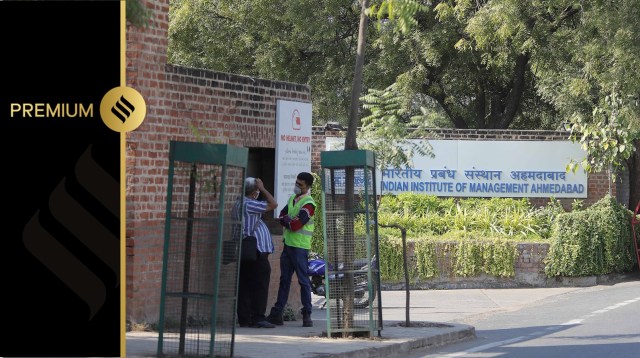THE GROUNDS under which the Government of India will get to invoke powers to dissolve the board of any Indian Institute of Management are likely to be: i) persistent disobeying of its orders, ii) public interest and iii) inability of the board to perform its duties.
The Board of Governors is the highest decision-making body in an IIM, and the government acts through the Visitor of the IIMs, who is the President of India.

Earlier, only the Board of Governors in an IIM had the powers to audit the functioning of the institute and remove or appoint directors. The Union government had little say in the matter. This changed three months ago when the Ministry of Education amended the IIM Act to assert more authority over the business schools, including giving itself powers to dissolve an IIM Board.
The three grounds for dissolution of an IIM Board are expected to be spelt out in the amended Rules (under the revised IIM Act) being finalised now, sources told The Indian Express.
While the changes to the IIM Act in August clearly stated that henceforth the President — in her capacity as the Visitor of all IIMs — is empowered to dissolve the Board, with the Ministry appointing an interim Board in its place, the extent of this power is now being defined under the Rules of the amended IIM Act.
For instance, while the amendment to the IIM Act granted the President the authority to remove the director of an IIM, the Rules are expected to explicitly state that the institute’s Board is obligated to follow the decision of the Visitor in this regard. There is no room for back-and-forth on this matter.
The Rules are also expected, for the first time, to firmly establish the educational qualifications of an IIM Director. It is understood the Ministry is keen on the amended Rules to specify that any candidate or applicant for the position of an IIM Director should possess a first-class degree at both the Bachelor’s and Master’s levels, in addition to a Ph.D or an equivalent qualification. Currently, under the unamended Rules, an IIM Director’s academic credentials are described as “a distinguished academic with a PhD or equivalent”.
Story continues below this ad
The provision on educational qualifications comes in the wake of the IIM Rohtak case. Here, Dheeraj Sharma, the incumbent Director, had misrepresented his academic credentials during his initial appointment, which occurred before the enactment of the IIM Act. Sharma had a second class Bachelor’s degree, instead of a first class, which was a mandatory eligibility requirement for the job as per the government’s advertisement.
ExplainedWhither autonomy
The government move goes against the grain of making academic institutions autonomous and gives it a handle to exercise complete control.
Subsequently, despite the MoE uncovering the fraud, it was unable to prevent Sharma’s re-appointment for a second term last year. This was because, at the time of his re-appointment, the IIM Rohtak Board had the absolute power under the IIM Act to choose the director and it had not stipulated a first-class Bachelor’s and Master’s degree as a mandatory criterion.
The amendment of the Rules under the IIM Act has been necessitated by recent changes to the law. In a surprising move, the Ministry had introduced an amendment Bill for the IIM Act during the monsoon session this year, significantly diluting the absolute autonomy granted to the 20 IIMs five years ago with the enactment of the IIM Act in 2018. The changes were made to entrust the management accountability of the IIMs with the President, who will be the Visitor to the premier B-schools with powers to audit their functioning and remove or appoint directors. Earlier, these powers were vested in the IIM Board with the Union government having little say in the matter.
Now, the President, in her capacity as Visitor, has the power to appoint the Chairperson to the Board of Governors and the director of the institute and nominate an individual to the search-cum-selection committee for the position of Director, giving the government a say in these crucial appointments.
Story continues below this ad
Education Minister Dharmendra Pradhan has justified the changes stating the government has no intention to take away the academic accountability from the institute but the bill will only ensure its management accountability.









